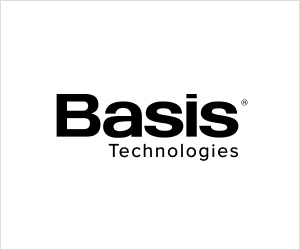 Contributed by Sheila O’Connor, AAF Omaha Board Member & Legislative Issues Chair
Contributed by Sheila O’Connor, AAF Omaha Board Member & Legislative Issues Chair
In case you missed it; here’s an article on sales tax exemptions and property tax relief:
Bills eye sales tax exemptions for textbooks, VFW food, horses, car washes
February 06, 2015 5:50 pm • By Zach Pluhacek | Lincoln Journal Star
Lawmakers hungry for lower property taxes had their appetites tested by a different kind of tax reform Friday.
Groups seeking sales tax exemptions for college textbooks, food sold by veterans’ organizations, horses and car washes made their pitches to members of the Legislature’s Revenue Committee, a group of eight senators who will decide which tax reform bills reach the full Legislature for debate this year.
Gov. Pete Ricketts has targeted property tax reform as his No. 1 issue this year, proposing $60 million in new property tax credits, and Revenue Chairman Mike Gloor of Grand Island has identified property taxes as the committee’s primary concern.
“I know this is a bad time to be asking for exemptions, but this is one I think we can afford,” said Sen. Dave Bloomfield of Hoskins, whose bill (LB191) would exempt food sold by American Legion and Veterans of Foreign Wars posts, along with other veterans’ groups, from the state sales tax.
Of the four bills addressed in Friday’s hearing, Bloomfield’s carried the smallest price tag: about $170,000 in its first full year.
“Each year more and more veterans’ service posts are closing,” said Ronald Dupell, service officer for VFW Post 2503 in Omaha’s Benson neighborhood.
The state contributes to their demise by taxing them out of existence, he said.
Sen. Jim Scheer of Norfolk questioned whether giving a tax break to nonprofit veterans’ groups would hurt local bars and restaurants.
“A veteran post contributes much more to the community than the average business,” Dupell said.
Bloomfield’s bill might have the easiest path of the four through the committee, and not only because of its relatively low price tag. Ricketts made aid to Nebraska veterans another priority in his proposed budget.
By comparison, committee members raised eyebrows at the $13 million fiscal note for Lincoln Sen. Adam Morfeld’s plan (LB153) to exempt college textbooks from the state sales tax.
“It doesn’t seem right,” Morfeld said of the dollar estimate, which was provided by the Legislative Fiscal Office.
The state has about 139,000 college students taking public, private or online courses, said Tip O’Neill, lobbyist for 14 independent colleges and universities in Nebraska.
Assuming university students spend an average of about $1,000 per year on books, depending on the school, that adds up to about $9.7 million in sales tax revenue. That doesn’t include students in other states who might buy books here.
Morfeld said he is working on an amendment so only students taking courses in Nebraska can receive the exemption.
Twenty-two states offer tax exemptions on textbooks, said Nick Devine, an undergraduate student at the University of Nebraska-Lincoln who spent $1,300 on textbooks in the past year.
“Students at the university need a break,” he said. “If we are full-time students, we cannot have a full-time job.”
No one testified against any of the bills on Friday, but Sen. Burke Harr’s bill (LB278) to exempt car washes from the state sales tax drew the most supporters — all car wash owners. They didn’t pay sales taxes until the state eliminated their exemption during a budget crisis 2002.
“The short-term fix is now a 12-year-old fix,” Harr told the committee, of which he is a member.
Restoring the exemption would cost the state about $2 million annually.
Car wash owners portrayed the bill as “environmentally friendly legislation,” noting their businesses use recycled water and are more efficient than when people wash cars in their driveways.
In addition, they said, they already pay sales taxes on chemicals and other products used for washing.
“This is a double taxation situation,” said Patrick Shannon, who owns a car wash in Bellevue and represents owners in eight Midwest states.
Other than Sen. Kate Sullivan of Cedar Rapids, no one testified on her bill (LB249) to exempt the sale of horses from taxation. The bill’s annual cost is estimated at about $1.3 million.
The state already exempts livestock sold for food, Sullivan said, and Pitzer Ranch in Ericson, one of the nation’s largest horse ranches, is a “big economic driver” in her district.
“Nebraska’s horse breeders are in competition with breeders in other states,” said Sullivan, another Revenue Committee member.
The committee took no action on the bills Friday.
But they were cautioned by Renee Fry, executive director of OpenSky Policy Institute, a Lincoln-based think tank.
When tax policy is written into law, rather than provided on a short-term basis, it ends up on “autopilot,” Fry said. And the ideal sales tax should apply as broadly as possible, she said.
“The more that is exempt from sales tax, the higher the rate must be to raise the same amount of revenue,” she said.



